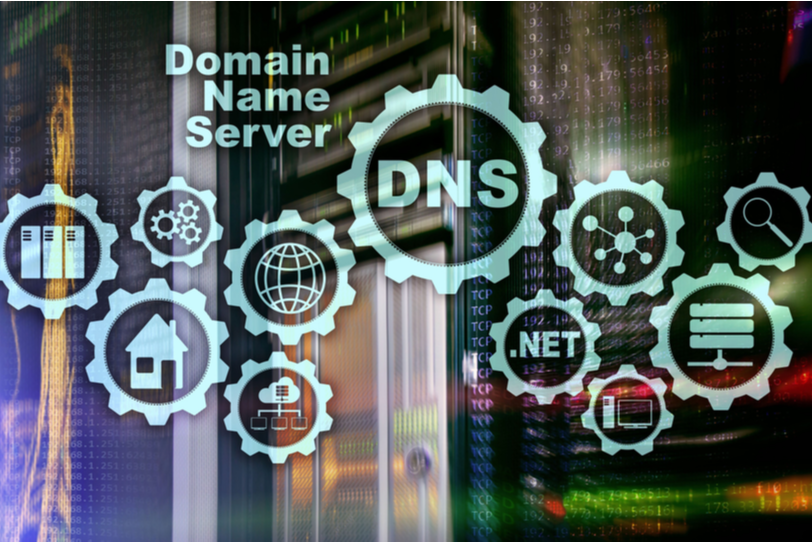
DNS or Domain Name System is very important for the reliability and performance of your cloud services and internet applications. The Domain Name System is the soul of the whole Internet. It is used for server hostnames to their IP addresses. Without DNS your browser can’t interact with any online service. DNS is used for matching IP addresses with their hostnames. Every time you are visiting a website, your web browser will first send a query to the DNS server. The DNS server will find the correct IP address of the website. Thanks to DNS, your browser doesn’t need to remember the IP address of every website. All you need to do is write the domain name of any website in your browser. The DNS will automatically match the domain name with its IP address.
DNS is very important for all the organizations that are doing their business online. DNS failure can lead to the poor performance of applications. Your data can become unavailable which can damage your organization’s reputation. Most of the enterprises are outsourcing their IT infrastructure. You should also consider using a cloud-based DNS server. Let’s first talk about own DNS servers.
Own DNS Servers
There are many companies that have their own DNS servers. We are going to talk about the pros and cons of using your own DNS servers.
Advantages of using your own DNS Servers:
- Control: The best thing about having your own DNS server is that you have full control. Your network administrator can change or set a different parameter. You can easily make changes to your DNS servers. If you are using your own DNS server, then you will have more options in your DNS interface. This is helpful if you have enough knowledge about DNS servers. But, if you are not familiar with DNS servers, then it can be confusing.
Disadvantages of using your own DNS Servers:
- Additional work: If you are having your own DNS server, then you need network administrators to manage it. You have to make sure your DNS server is working correctly. Also, your administrator needs to constantly update their knowledge. Otherwise, they won’t be able to protect your servers from new vulnerabilities. This activity can be very time-consuming for your network administrator.
- DDoS Attacks: You need to make sure that your server is protected from DDoS attacks. The best way to protect your server from DDoS is by buying DDoS protection services. There are many anti-DDOS specialized services like Cloudware, Akamai and Incapsula. But, these services will cost you a lot of money.
Managed DNS Servers
There are many benefits of using a Managed DNS server. Most of the good DNS service providers have global level DNS infrastructure. They also have DNS experts who know how to deal with DNS attacks. There are various benefits of using managed DNS servers like:
-
Dedicated management resources and DNS design
It is difficult to design, operate and protect your own DNS server. You need a lot of money to implement an in-house DNS server. Most of the ISPs don’t have the expertise and knowledge to deliver business-level DNS performance. You can achieve the best performance by buying DNS services from professionals. Your internal IT staff will also get more time to work on a more important project.
-
Scalability and Global Performance
Most of the DNS service providers have a large-scale DNS network. They have many different points of presence (PoP) located around the world. The best thing about managed DNS servers is that they will automatically accelerate the queries by sending it to the closest PoP. This will ensure that your clients can always access your website.
-
Security
DNS services providers make sure that their server is secured from all types of DNS attacks. They have multilayer security which makes sure that all their servers are secured. Most of the service providers also have a full team of security professionals. These professionals are always monitoring industry trends. They are always upgrading the security of their systems.
Few in-house DNS providers can also deliver the same level of security. But, if the DNS servers are geographically distributed in the world then it will eliminate the risk of a single point of failure. This will ensure that you will get continuous service even if one of the servers is down.
-
Custom-build options
If you are buying cloud-based DNS services, then you can choose what you exactly need. You can choose the servers you need and where they should be located. If you need DDoS protection, then you can also opt for it.
-
High Availability
One of the best things about managed DNS service providers is that their servers are located globally. Thus, there is no single point of failure. They have high availability data servers that are spread across the whole globe. Some of the best DNS service providers also have their own separate fault lines, power grids and flood plains. They can also install the connections to multiple different ISPs. This will ensure that you will get uninterrupted service even if one of their equipment fails.
Conclusion
It is difficult to create a highly efficient, reliable and scalable DNS infrastructure. You need a lot of money, expertise and time. Thus, you should always opt for cloud-based DNS solutions. This will also help you in saving a lot of money. Your IT department can focus on more important tasks. Cloud-based DNS services also offer high availability and flexibility to their users. If you have any doubts about cloud-based DNS services, then you can contact Bleuwire.
Contact us today to learn about Bleuwire™ services and solutions in how we can help your business.





